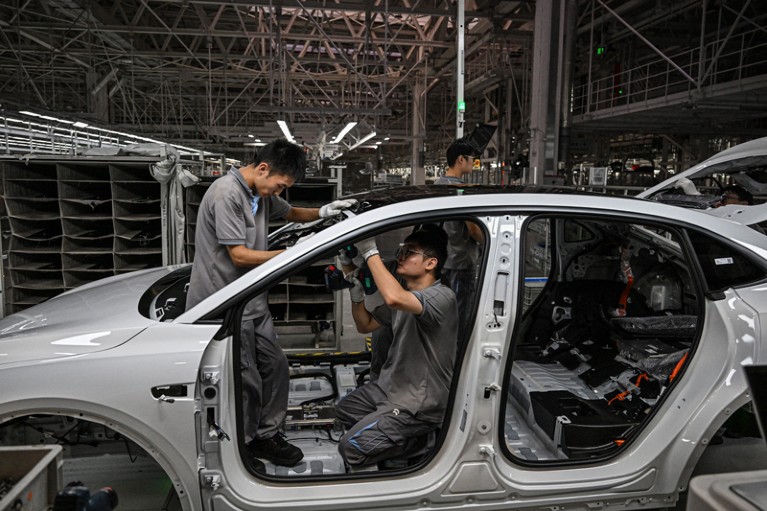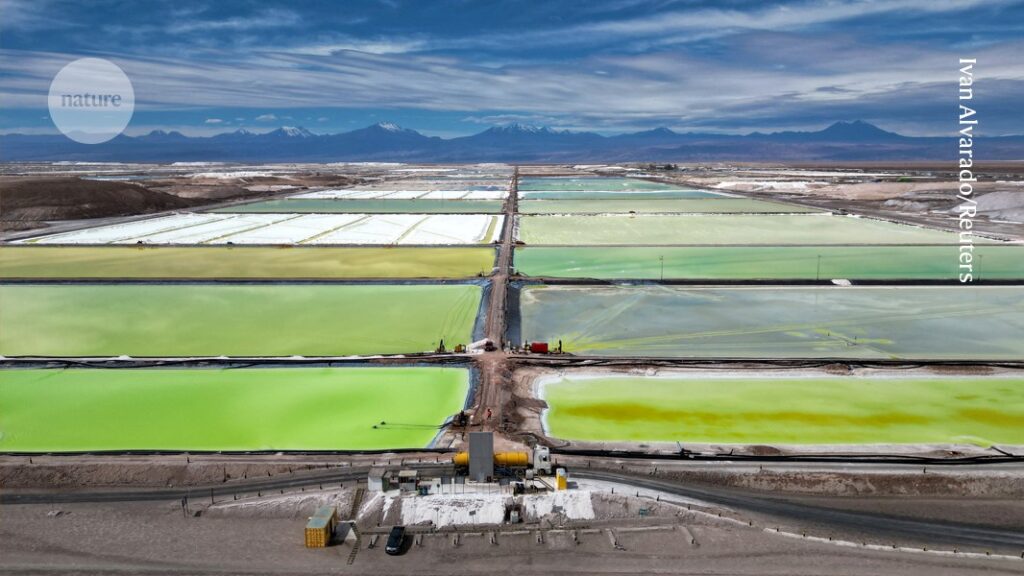Extraction: The Frontiers of Green Capitalism Thea Riofrancos W. W. Norton & Company (2025)
It was meant to be the world’s grand fix for the climate crisis: nations would make their economies greener by transitioning to renewable-energy technologies, electrifying transport and digitalizing the global economy to reduce material use. After years of fraught negotiations, countries agreed to this global transition at a momentous summit in Paris in 2015. But the fix has proved to be more complex.
In Extraction, an illuminating examination of the emerging renewable economy, political scientist Thea Riofrancos takes a close look at one crucial element: lithium, which is essential for producing batteries and other technologies. Drawing on fieldwork with affected communities and analyses of projections that anticipate a massive increase in mining to propel emerging green technologies, she argues that the narrow focus on emissions has fuelled the illusion of “capitalism without carbon”, exposing a moral dilemma at the core of the green transition.
Why the green-technology race might not save the planet
Riofrancos challenges these assumptions and, working with specialists, models alternatives: more public transport, cycling, walking, denser cities, fewer cars and higher recycling rates. Instead of chasing a single net-zero future, in which the amount of carbon emissions emitted is balanced against the amount removed, she suggests multiple zero-emissions worlds that balance climate goals against the protection of people and ecosystems.
Throughout Extraction, the reader learns how treating carbon emissions as a purely technical problem has produced a race to procure lithium, opening up vulnerable regions to companies that often act like neo-colonial powers.
Chile provides a strong case study. Riofrancos focuses on the country’s lithium-rich Atacama Desert, a high-altitude, bone-dry landscape of “dazzling days and spectacularly starry nights”. Humans have lived there for at least 12,000 years. In fact, for 1,500 years, trade networks across the plateau linked the mountains to the Pacific Coastal Plain. Yet, as early as the sixteenth century, those seeking the region’s minerals described the landscape as barren and lifeless — a claim used to justify Spanish colonial rule and mineral extraction. After independence in 1818, the Chilean government recast the region as having “economic potential”.
Why the EU must reset its Green Deal — or be left behind
Riofrancos’s fieldwork highlights the science and technology of extracting and processing key minerals. Through interviews with Indigenous communities, environmentalists, union members, scientists, lawyers, regulators and corporate actors, she reveals competing agendas and visions of green futures.
It’s through these interviews that she first encounters her central dilemma: the clash between renewable energy and Indigenous rights and between climate action and biodiversity. She follows this tension from South America to decision-making centres in the European Union and the United States, where major powers are trying to ‘de-risk’ their economies by shifting supply chains — either towards allies or back home.
These strategies are a result of wealthy industrial nations belatedly waking up to the fact that China has leapfrogged them and scaled up the production of electric vehicles and renewables and secured dominance across supply chains, from mine to market. Importantly, and driven mainly by competition between the United States and China, this re-ordering of industrial leadership has fuelled geopolitical tensions. It has unravelled ties of interdependence and sparked a race for crucial minerals, as well as a battle over who will control the technological imperium.

Electric vehicles use lithium-powered batteries. Credit: Jade Gao/AFP/Getty
Riofrancos’s close-up study of the lithium supply chain suggests that the worst is yet to come. Trade barriers and the growing reliance on transactional deals risk turning entire regions back into sites of exploitation, undermining hopes for a just transition to green energy.


